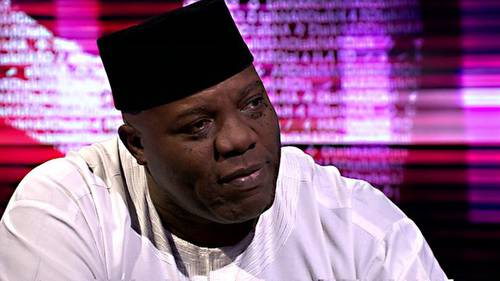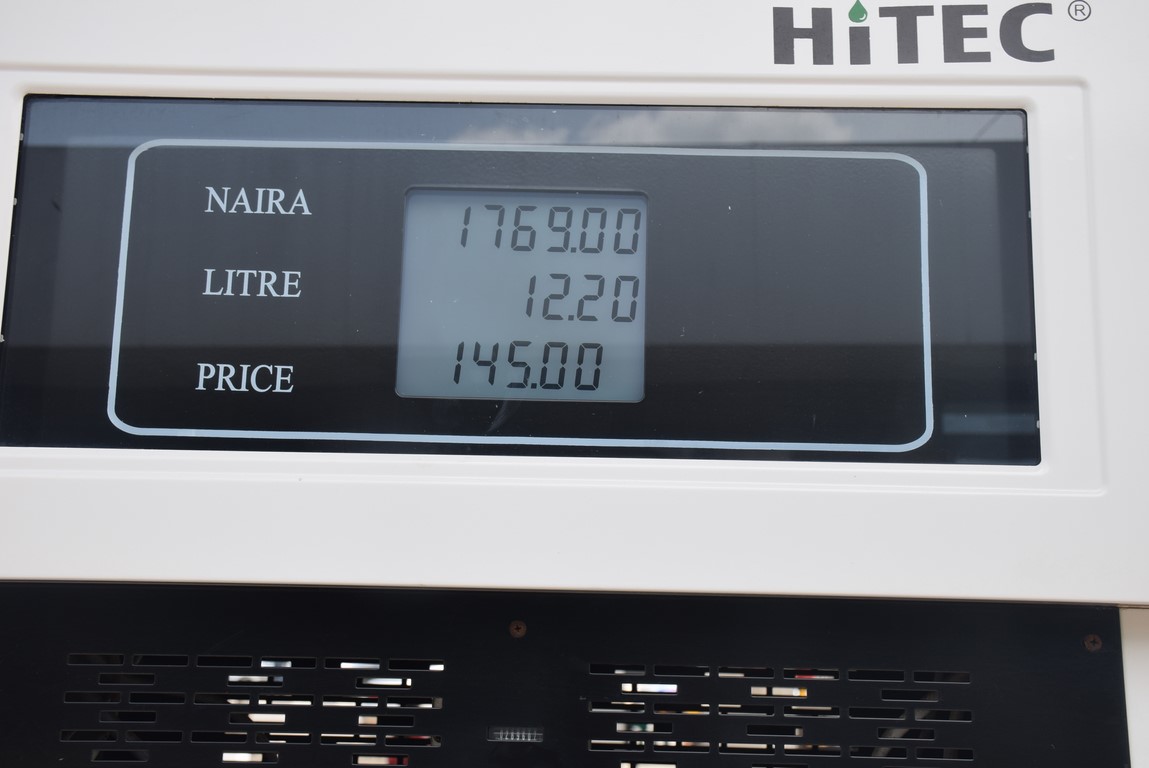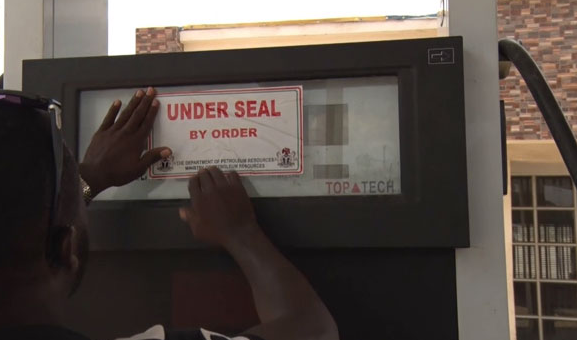Climate Change is coming! I suppose that sounds like the apocalyptic “Winter is Coming!” mantra in the sensational TV series Game of Thrones. But as far as Nigerians are concerned, the reality of climate change is no longer questionable and 2016 thus far seem to confirm it. In the first four months of this year, Nigerians have experienced a very intense and unusual heat wave sweeping across the country. The consequences have been excruciating pain and discomfort, with many restless during the day’s work and sleepless at night’s bedtime.
If you have been wondering what Nigeria’s crime is to be the victim of such draconian heat, well, here is the gist. There is good and bad news. The good news is that temperatures have risen by various degrees in many countries and indeed planet Earth, in recent months. In fact, climate scientists have declared that 2015 was the hottest year in world history since record-keeping began in 1880, and that the first three months of 2016 have already reached new temperature peaks. So I suppose we can take solace in the fact that we are not alone in this “hellfire-like” weather.
The bad news however is that unless drastic mitigation steps are taken, temperatures in many places around the world, and including Nigeria, will continue to rise in the coming years. In March 2016, the Nigerian Meteorological Agency (NIMET) forewarned Nigerians to expect more hot days, warm nights and heat waves in the days and months to come. At the global level, the Intergovernmental Panel for Climate Change (IPCC) have also opined that unless significant global efforts are taken to keep fossil fuels and the greenhouse gases they emit to the barest minimum, global temperatures will continue to rise into the next century.
It is in response to this impending unbearable heat and other consequences of unabated GHG emissions that governments, civil societies and individuals around the world are promoting the cause to break free from fossil fuels. In the developed world, many governments are perfecting plans and policies to replace fossil fuels with renewables in their energy mixes. In many of these countries, people are already contributing to the cause by effecting lifestyle and behavioural changes. For instance, people are ditching private cars and taking more public transport or even cycling; some are switching from gas boilers to electric heaters for in-house heating, and those who can afford to are switching from conventional ICE-powered vehicles to electric cars. In fact, in Japan, there are already more electric cars charging spots than gas stations, according to the Japanese automaker, Nissan. Developing countries are catching on as well. India, for example, boasts of one of the highest renewable energy generation in the world. In South Africa, there are reports that renewable energy is quietly stealing a march on coal, with wind energy leading the charge. To top it all off, last December’s ambitious Paris Climate Change Agreement and the favourable disposition that many countries recently demonstrated towards that agreement provides a good icing on the cake!
Advertisement
However, in Nigeria, what actions are being taken to break free from fossil fuels? Nothing! Oh wait, that’s harsh, the government is actually doing something. After all, the President attended the recent Nuclear Security Summit on one of his much-maligned and seemingly innumerable foreign trips. And lately, there have been talks of Nigeria building nuclear power plants to take the pressure off fossil fuels as Nigeria’s main source of electricity. Last year, the Nigerian Electricity Regulatory Commission enacted regulation to mandate electricity distribution companies to acquire a minimum percentage of electricity from renewable energy sources, and approved feed-in tariff regulations for renewables-sourced electricity. There are also reports that over the last two years, the Nigerian government received pledges and signed agreements with energy firms based in countries like the US and South Africa regarding the establishment of solar-powered electricity plants in Nigeria.
Plenty of talk, not enough action. An examination of the Nigeria’s energy consumption still shows an overwhelming dependence and appetite for fossil fuels, and more worryingly, a dogged reluctance to change that status quo. Next to water, liquid fossil fuels are perhaps the next most consumed – in an economic sense – liquids in Nigeria today. For nearly every Nigerian household, there is at least one essential daily activity that cannot be performed without diesel, petrol or kerosene. Talk of cooking meals, commuting around town or lighting up homes with electricity. Firms and institutions are not left out, as companies, universities and government institutions (including offices of the Power Holding Company of Nigeria, the country’s power company) are often run on petrol- or diesel-powered generating plants, with power supply from the national grid acting only as backup!
Let’s face it, breaking away from fossil fuels in Nigeria will take tremendous efforts. Crude oil provides the bulk of the country’s revenue and to toss it into the thrash can without hesitation will certainly be a herculean task. Besides, for a country very hungry for economic and social development, the urge to continue relying on fossil fuels to power this development is immensely tempting. But the truth is that we have found ourselves in a world where the burning of fossil fuels in the past has left us with two very hard choices: to either take the difficult step to break free from fossil fuels and seek alternatives as expediently as possible or to live with the harsh consequences of its continued usage or delayed phase-out. Taking a cue from how immensely the heat wave currently experienced has adversely impacted our lives and wellbeing, and the unwelcome prophesies of more to come, does it really take rocket science to realise that the former option is the “lesser of two evils”?
Advertisement
Moreover, it is expected that those who benefit from the continued usage of fossil fuel will fight tooth and nail to keep them in play. They will lobby with governments. They will argue that fossil fuels are cheap and accessible, and that there are no viable alternatives. They will claim that crude oil is the very substance upon which our economy lives and dies. However, such arguments can be dismissed as either deliberately peddling cheap rhetorics or thinking about this all in the wrong way. First, due to technological innovations, renewable technologies especially solar are becoming increasingly cheaper. And the best part is that solar panels have near-zero marginal cost – once they are installed and paid off, they generate power almost for free. Compare this with a generator plant that you have to fuel regularly, and fossil fuels do not seem that cheap anymore. Secondly, the question of accessibility is less of a problem to be avoided and more of an opportunity to make money. With power supply from the national grid reaching all-time low – zero megawatts, as a point – there has never been a better time to promote and market options like solar panels to a Nigeria populace hungry for alternatives. Over to you, investors!
The reluctance to breakaway from fossil fuels because crude oil is the main “sustainer” of the Nigerian economy is also ill-conceived. With global drive to break away from fossil fuels gathering momentum, albeit very slowly, alternative sources of energy in every sector of the global economy are springing up by the day. Just last month, a solar-powered airplane “The Impulse” completed a successful 3-day flight over the Pacific Ocean without a single drop of fossil fuel. I suppose that is an epic example of things to come, and it is not preposterous to assume that as a result of these new innovations, demand for oil – and by extension, prices – will plummet beyond reckoning at some point in the near future. If the quest to contribute to global efforts to keep temperature rise to levels bearable for human lives is not enough motivation for us to get on the break-free-from-fossil-fuel train, the necessity to sustain our economy beyond probable obsolescence of crude oil should be. The handwritings are on the wall, and to ignore them is to wallow in future regrets.
Add a comment







